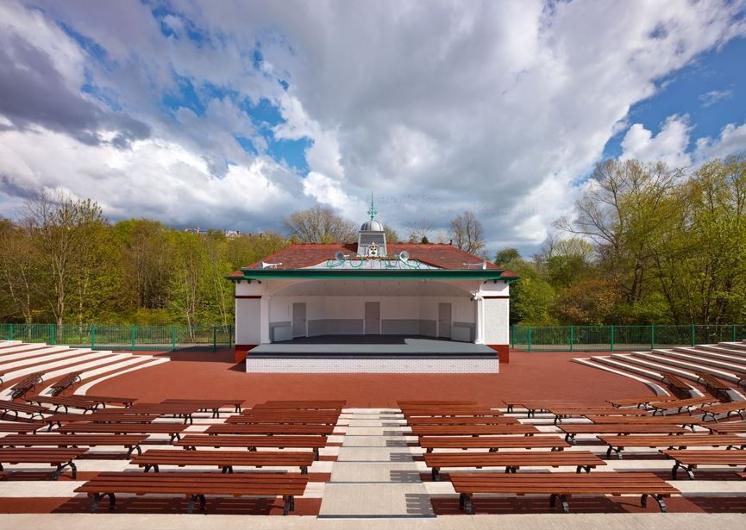Glasgow built heritage trusts to receive £290k from council

Kelvingrove Bandstand
Glasgow City Council has awarded £290,000 in funding to the Glasgow Building Preservation Trust (GBPT) and the Glasgow City Heritage Trust (GCHT) for the next year.
The trusts are the primary route for residents and community groups in Glasgow to access assistance and financial support for investing in the city’s heritage assets.
They are key partners in the independent Built Heritage Commission, a body established in 2024 to bring together organisations in Glasgow to support the city’s historic environment and maximise the economic, cultural, and social value of its built heritage.
The approval of council funding for the 2025/26 financial year means the GBPT will receive £50,000 core funding to the GBPT, with £240,000 – £50,000 core funding and £190,000 grant funding – given to the GCHT.
The GBPT, established in 1982, has in recent years delivered projects such as the Kelvingrove Bandstand and the West Boathouse in Glasgow Green.
In the past year, it has been working on the possible return of historic janitor’s houses as social housing and feasibility, fundraising and development studies for significant sites including the Lion Chambers, Langside Halls, the Queens Park Glasshouse, Govan Lyceum, and Whitevale Baths.
The remit of the GBPT is to address market failure by redeveloping historic buildings that other organisations cannot and reaching out to those left behind by traditional heritage approaches.
The trust also runs the annual Glasgow Doors Open Days Festival, the 35th edition of which attracted more than 30,000 visitors to 230 events in 2024, and continues to deliver community engagement and education activities across the city.
The GCHT was established in 2007 and provides grants to owners to restore heritage buildings at risk, from windows in listed tenements to landmark projects such as the restoration of Mackintosh’s Willow Tea Rooms on Sauchiehall Street. Over that time, more than 2,170 grants have been given to people and organisations owning such properties.
Over the last year, the GCHT grant-aided 20 heritage projects across the city totalling £643,284, and these grants supported total project costs of over £4.4 million.
For every £1 from the trust, over £6 was invested by other organisations, showing their effectiveness in levering in funding for these projects.
Some recent projects include repairs to the B listed historic Bell o’the Brae tenements on High Street; the distinctive B-listed Pyramid building – the former Anderston Kelvingrove Parish Church – and the A-listed landmark tower at Trinity College.
The trust provides a range of outreach and training programmes to develop much-needed skills in specialist conservation trades, as well as offering a range of community and education projects such as exhibitions, lectures, podcasts and workshops, and advising owners on the best conservation practices.
Councillor Ruairi Kelly, convener for built heritage and development at Glasgow City Council, said: “These trusts are key partners for the council and the city in the work done to protect and develop Glasgow’s built heritage.
“The funding now approved for the next year will allow them to continue the very valuable work that they do in what can be a challenging environment for heritage buildings – work that is important economically and culturally and in terms of preserving our unique built heritage and identity.”

















